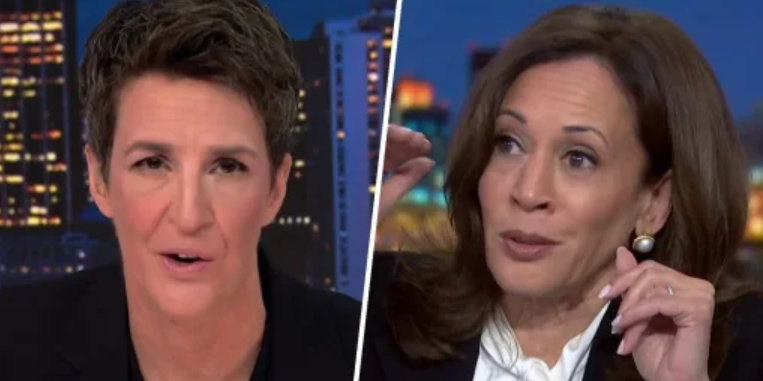Kamala Discusses Decisions During Interview
Kamala Harris has always struggled with communication, and her latest media blitz surrounding her new book does little to shake that reputation—in fact, it might be making it worse.
From the very beginning of her political ascent, Harris has had difficulty articulating clear, convincing messages. Her 2020 presidential campaign fizzled out not because of lack of money or name recognition, but because she couldn’t effectively connect with voters. Her speeches were often muddled, her messaging inconsistent, and her attempts to appear relatable usually fell flat. That flaw has only become more glaring in the years since, particularly when placed under national scrutiny.
Maddow presses Harris on Buttigieg: to say that he couldn’t be on the ticket effectively because he was gay. It’s hard to hear.
Harris: No, no, no, that’s not what I said…it wasn’t about any prejudice on my part, but we had such a short period of time. pic.twitter.com/ZrM5TYm8rL
— Alex Thompson (@AlexThomp) September 23, 2025
Now, in the midst of what increasingly looks like a pre-2028 campaign tour, she’s making the rounds to promote her book. But rather than rehabilitate her image, Harris seems to be reaffirming the very problems that made her a weak candidate in the first place: muddled messaging, poor judgment, and political tone-deafness.
Take her recent appearance on The Rachel Maddow Show. When asked about why she didn’t choose Pete Buttigieg as a running mate, Harris seemed to dance around the issue, denying that his sexuality had anything to do with it—only to immediately suggest that being gay might have been “a real risk” because she had just 107 days to campaign. Her explanation, in typical fashion, contradicted itself. It was as though she wanted credit for inclusivity while still playing political calculus. The result? Confusion and frustration—on both sides of the aisle.
Kamala says that the 2024 election— in which she lost every single swing state and the popular vote— “ended up being the closest presidential election in the 21st century.”
Must be drunk again.pic.twitter.com/uTo9S4Lo2W
— CJ Pearson (@thecjpearson) September 23, 2025
And then there’s the deeper political problem: she’s alienating parts of her own party. Her comments on figures like Zohran Mamdani—hesitating to endorse him while offering up obscure replacements—don’t exactly inspire confidence in her coalition-building skills. Worse, she admitted it was “reckless” not to challenge Biden’s reelection bid, a statement that might win her points for candor but simultaneously raises questions about her judgment and loyalty.
But perhaps the most alarming moment came when she described Donald Trump not only as a “tyrant” but also a “communist dictator”—a stunningly incoherent insult given the ideological contradictions. If you’re going to fear-monger, at least pick one side of the spectrum. The comment felt desperate and out of touch, especially in a moment when national rhetoric is under scrutiny following recent political violence.
Kamala Harris completely deflects from a question about Zohran Mamdani’s influence on the Democratic Party:
“He’s not the only star. I know he’s in New York and New Yorkers think they’re the center of the world… but there are people like Barbara Drummond in Mobile, Alabama…… pic.twitter.com/nauKXv9f6H
— Greg Price (@greg_price11) September 23, 2025
Even the New York Times can’t hide the Democratic erosion. In 2024, over 2,600 counties shifted toward Republicans by an average of 13.3 points. That’s a massive swing—one that includes working-class voters across racial lines. Democrats are right to be nervous, and Harris is not helping ease those nerves.
Kamala comes out of hiding to promote her book and says that Donald Trump is a “communist dictator.” pic.twitter.com/UMdSjOEWxg
— Greg Price (@greg_price11) September 23, 2025


